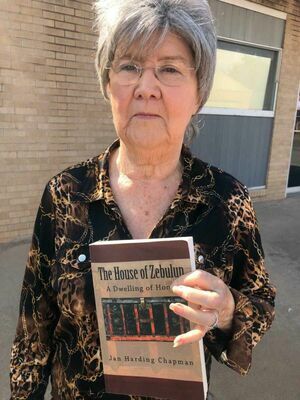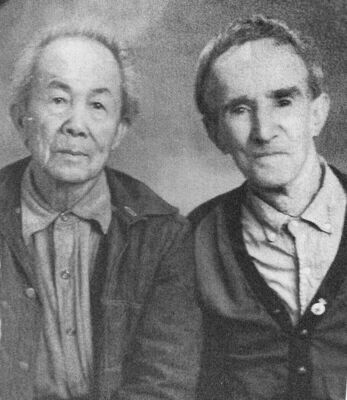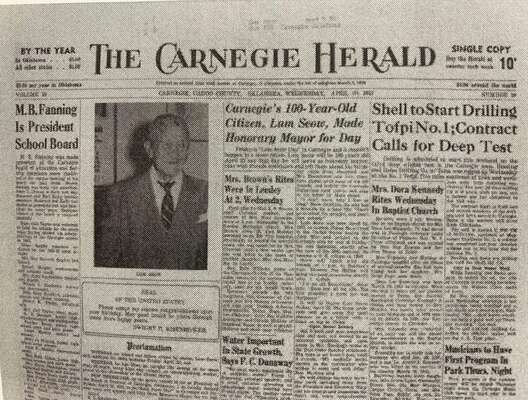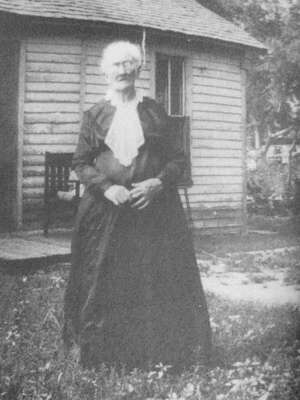Carnegie woman pens book that highlights town's early days
Jan Harding Chapman has lived most of her life on the banks of the Washita River in Carnegie. Now 82, she has seen much of the community’s successes and struggles through the years. Fortunately for Carnegie, the parts of the community’s growth from nothing to its current position as the jewel of the Oklahoma plains on the south side of the river is part of her family’s history.
And that history is now preserved.
Chapman unveiled her attempts to preserve her family’s history - and Carnegie’s, too – by self-publishing a book entitled, “House of Zebulun, A Dwelling of Honor.” The 332-page book follows the descendants of Sarah Stanton Ingrahm as they made their way from Illinois to Oklahoma as part of the land run, and the arrival of one the communities’ most-beloved residents, Chinaman John.
“I had so much fun putting this (book) together for my children, and preserving their history, as well as our part in Carnegie’s history,” said Chapman, a self-professed compulsive writer who graduated from Carnegie High School in the late 1950s. “I’m a writer. It’s a compulsion for me, and I owe it all to (former Carnegie High School educator) Mrs. Burwell. She encouraged me. I was one of those kids in school that was like ‘don’t look at me’ because I was shy. She would always read my writing and encourage me.
“She put me on the path to this all those years ago,” she said.
Chapman’s history book begins in the mid-1800s when her great-grandfather, Zebulun Wheeler Ingraham met and married her great-grandmother, Sarah, in Illinois. A war veteran, Zebulun disappeared shortly after his marriage, leaving Sarah and her son, Clyde, to fend for themselves. Sarah Ingrahm proved more than adept at surviving. Despite being barely 5-feet tall, she founded a chain of hotels in Illinois.
When Clyde grew older, he expressed the desire to head to the Oklahoma Territory to participate in the land run which opened the state to settlers. Sarah, unwilling to see her son go by himself, decided to follow him. Unfortunately for Clyde, the land run proved to be a bust. Despite arriving in time to join thousands of others in making a dash for land in The Strip, he found himself near Mountain View without any property.
Clyde, Sarah and their friend, Chinaman John, landed on their feet, however. Shortly after arriving in Mountain View, the two met an entrepreneur that asked them if they wanted to join him in starting a hotel/restaurant in the new town of Carnegie, which had recently changed its name from Latham to Carnegie in hopes of convincing millionaire Andrew Carnegie to build a library in the community.
Even that break didn’t begin easily, however. The equipment they needed to begin the community’s first restaurant did not arrive on the Rock Island Railroad at the time it was designated. Not to be deterred, Sarah and Clyde opened the town’s first restaurant over an open fire in the middle of a street. The mother and son operated the restaurant for about four years before deciding to move about 10 miles south of town to the community of Alden.
The arrival of Sarah and Clyde Ingrahm also signaled the arrival of a local legend in Chinaman John, a Chinese immigrant who devoted his life to Sarah and her son. Born Lum Seow in China in 1855, he was better known as “Chinaman John” and lived in Caddo County until his death at the age of 104.
Seow’s role in the development of the area began when he was in his 30s. After suffering a near-fatal injury while in Tecumseh, Nebraska, he was nursed back to health by Sarah Ingrahm, who was operating a boarding house in the community. Seow, according to his Chinese upbringing, credited Ingrahm with saving his life – and left him owing his life to her.
“One night my grandfather (Clyde) heard a wagon come up to the hotel they had,” said Chapman. “Someone told them they had found a man in one of the railcars and that they thought he was dying. He had been beaten pretty badly and had lost a lot of blood,” Chapman said. “She (Sarah) took him into the house and nursed him back. After that, they couldn’t shake him. He took care of my grandfather and great-grandmother until they died.”
“The people who have lived here a while will remember him,” she said. “He was a hero to me.”
Clyde and his wife, Marguerite, settled in Carnegie where they raised their family, including Jan Harding Chapman.
Following the death of Sarah in 1930, Chinaman John and Clyde moved to Carnegie. Both are now buried in the Alen Cemetery.
The book, The House of Zebulun, which was initially published in 2015, can be purchased online through Amazon books.
Please support The Carnegie Herald by subscribing today!
